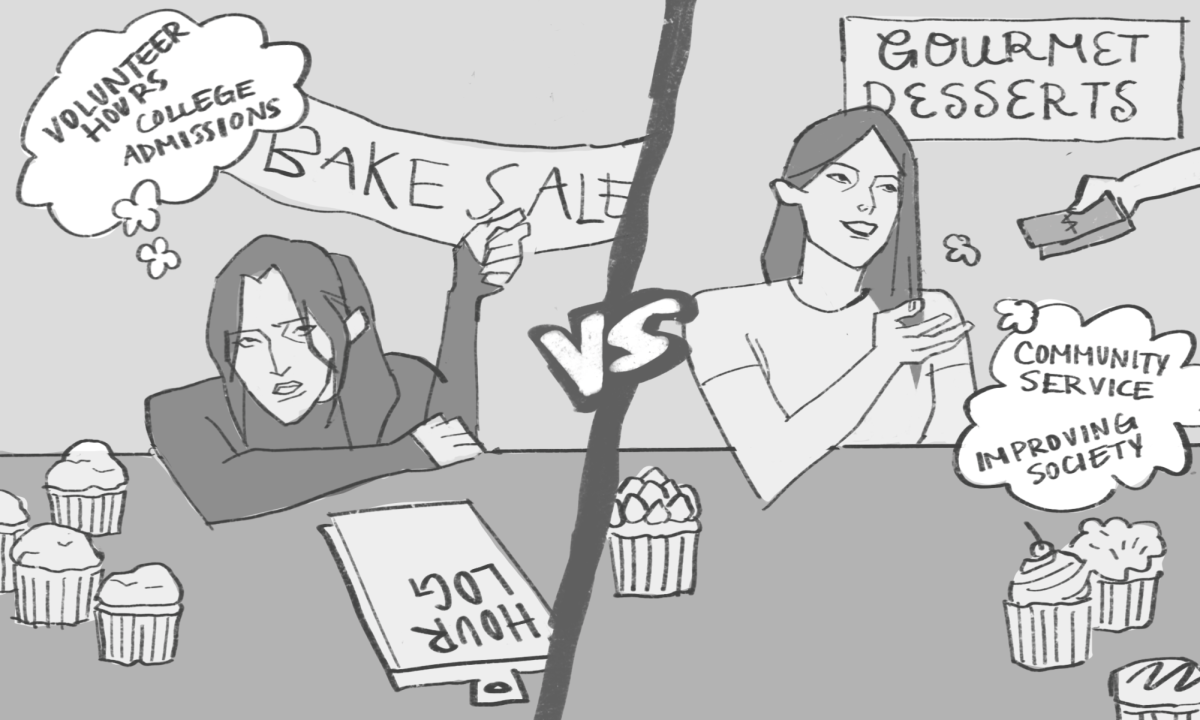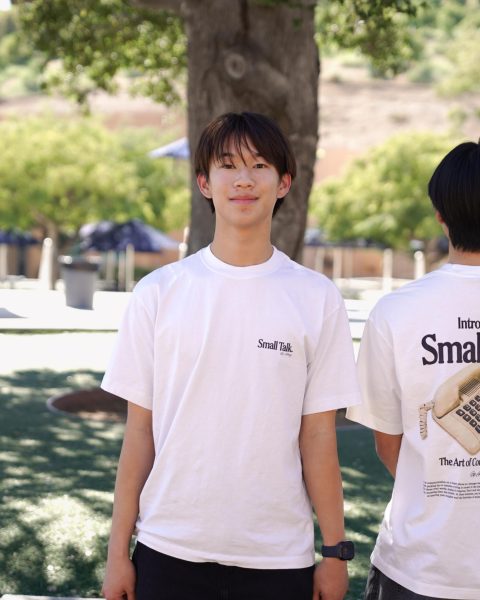When you are endlessly stacking library books or digging through your cupboard for canned foods just for a signature, it is easy to forget the why. When volunteerism gets reduced to just another checkbox on college apps and service hour sheets, the meaning can get lost. We must remember that volunteer work should come from a genuine desire to better one’s community.
With over 600,000 high schoolers volunteering nationwide every day, according to the Department of Labor Statistics, it’s more important than ever to ensure high schoolers are not volunteering with a purely transactional mindset. When you’re chasing hours without purpose, there is little care for who, why and how you’re helping out.
If you treat volunteering like an unwanted chore, it’s going to feel like one, and it will show. At the end of the day that benefits no one: not you, not your experience, and not the people or cause you’re supposedly supporting.
“Volunteer work is used by colleges to gain better insight into a student’s commitment and character,” counselor Kelsey Loup said. “It can be used to demonstrate interest in a specific area or to show commitment to bettering the community that the student resides in.”
Of course, the desire to log volunteer hours is understandable, as college admissions are competitive. This incentive system creates a win-win mentality: if volunteering is inherently good for society and good for our futures, what’s the problem?
However, genuine volunteering means you have the desire to contribute meaningfully by seeking out the needs of your community, reflecting your interests and values—and most importantly, done with empathy. Choosing to stay committed to causes that you care about helps lead to deeper relationships with the people you interact with and ultimately helps create a larger impact over time than just volunteering on some random Saturday.
“I’ve noticed that when I volunteer for organizations that connect my interest for STEM and engineering to teaching kids, I feel way more passionate about it than some other activity I don’t care about,” junior Milton Sun said. “That’s why I would advise others to find and keep doing something they actually enjoy.”
Some argue that meaningful, passion-aligned opportunities are hard to find. Although that may be true, the most important shift isn’t what you’re doing, but why.
If you care about the impact being made, shouldn’t it feel good that you take the time out of your day to better someone else’s?
Whether it’s making sense of what you’re doing or finding out what resonates with you, it’s still a valuable experience, and a starting point to making a contribution to the world.
“Kids don’t understand how important it is that we take care of each other,” Northwood California Scholarship Federation advisor Cathleen Zeleski said. “They more or less just want to serve their time and then be done. We really need to start not just trying to put in the hours to get the points, but think about what we can do to make a difference.”
Northwood organizations such as CSF are one example of trying to adhere to this mindset shift. Zeleski’s solution to foster genuine student work is to alter CSF’s community service from purely outside campus to focus on the student body’s needs by aiding ASB, peer tutor and other service clubs on campus.
Other clubs are finding similar ways to make volunteering more meaningful. Take Interlude, a club teaching music to young kids.
“Meaningful volunteering is making an impact that doesn’t necessarily have to be something big, like the scope of it,” Interlude president senior Ellie Guo said. “Being able to see who you’re impacting… rather than just having a fundraiser or making cards… is really powerful.”
So how do you make the shift? Start by combining your values or interests with volunteering, start by looking at issues or needs you see in your community, start by finding causes that connect those dots—or better yet, start by creating your own.





















































